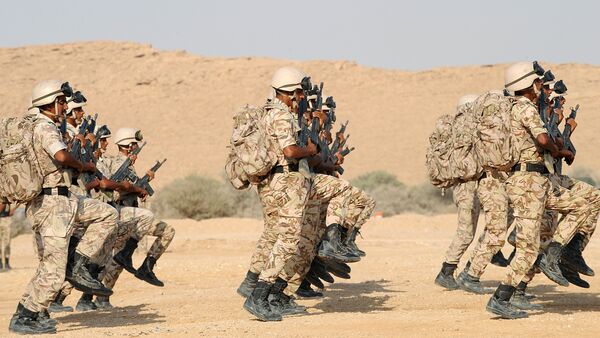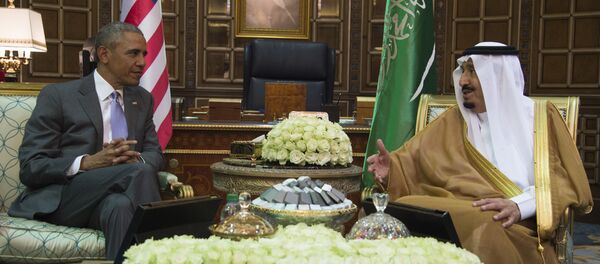During an official visit to Riyadh on Thursday, German Defense Minister Ursula von der Leyen reportedly discussed the proposal with her Saudi counterpart Mohammad bin Salman.
Berlin first floated the idea of training some members of the Saudi armed forces in 2015, and it is initially planned that three to five Saudi officers will be trained by the Bundeswehr in Germany each year.
The proposal has elicited criticism from opposition parties, which object to Berlin's military ties with Riyadh, all the more since Saudi Arabia launched a bombing campaign on Yemen in March 2015.
In September the UN humanitarian coordinator said that at least 10,000 people had been killed or wounded in the Yemen conflict. In late August the UN had estimated the civilian death toll at 3,799, with air strikes by the Saudi-led coalition responsible for around 60 percent of deaths.
Green party defense spokeswoman Agnieszka Brugger said that Germany must not allow a situation in which "the brutal regime continues to be courted, gets German weapons deliveries and rolls out the red carpet for the German defense minister, without anything being said."
Brugger called on the German government to bring about "an end to the federal government's unspeakable, irresponsible policy of ducking away (from criticism of its relationship with Riyadh)."
The Greens and the left-wing party Die Linke have repeatedly expressed concern about German sales of military equipment to the Saudis.
In July German Minister for Economic Affairs Sigmar Gabriel announced the delivery of the first military patrol boats to Saudi Arabia, following a deal agreed in 2013 to sell 48 of the boats to Riyadh.
"Saudi Arabia is a lawless state and is waging war in Yemen. There isn't a single good reason to authorize the export of weapons," Die Linke's arms control expert Jan van Aken told Frankfurter Rundschau.
The German government should be careful about military co-operation with Riyadh in light of Saudi support for extremist Islamic movements like Salafism and Wahhabism, which have links to terrorism, defense expert Alexander Neu told Tagesspiegel.
"Those who, like Saudi Arabia, support Islamists and jihadists, can't simultaneously combat them and provide stability and peace in the Middle East," he said.
Last month it was reported that Germany's Military Counterintelligence Service (MAD) had discovered at least 20 "Islamists" serving in the country's armed forces, and another 60 soldiers under suspicion of having ties with radical Islamist groups.
The Daesh terror group has urged followers to join the armed forces, and specifically targeted ex-soldiers. At least 30 German veterans have traveled to fight in Syria and Iraq, Germany's Berliner Morgenpost reported.




